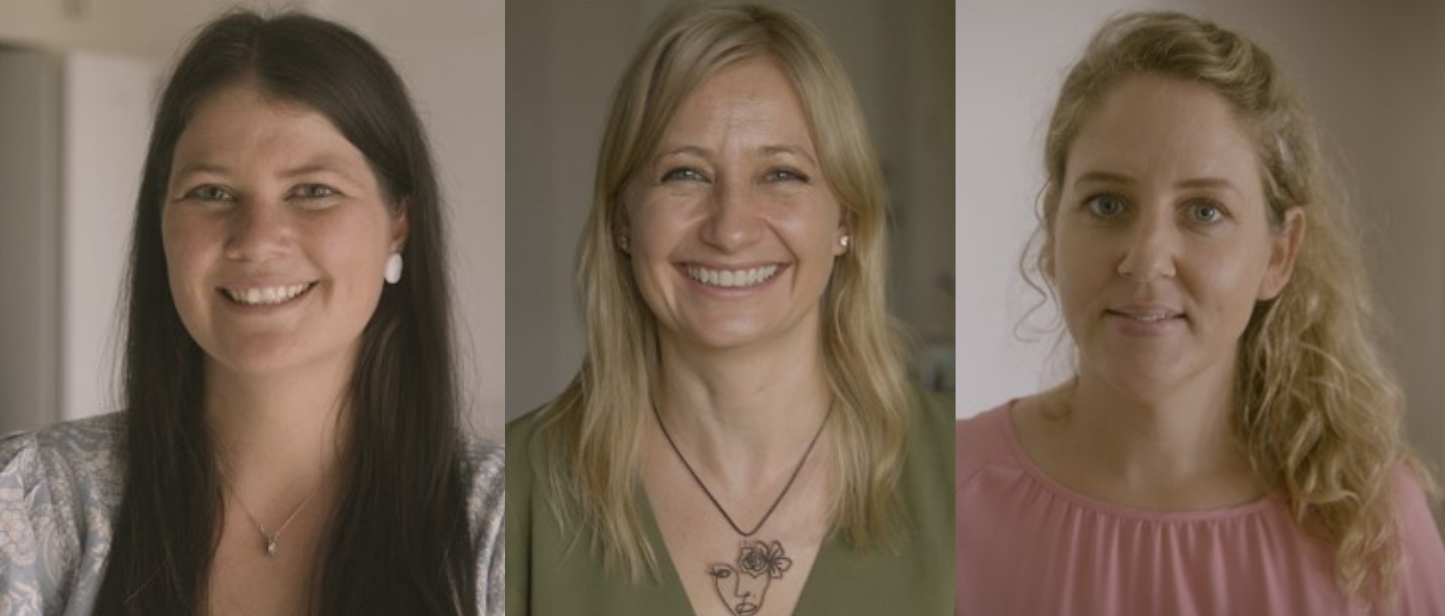Army wives find flexibility by starting their own businesses
by Lydia Teychenné, Australian Defence Force (ADF) partner and Programme Coordinator for Prince’s Trust Australia
This International Women’s Day (8 March), Prince’s Trust Australia is celebrating ADF partners who are rising to the challenge of maintaining a career and a modern Defence family life.
Prince’s Trust Australia has released a video featuring three women who are married to soldiers and forging new careers designed to withstand life on the move.
The video is a rare glimpse into the life of the modern-day Army wife, revealing challenges to career progression when managing postings, raising young children and isolation.
Loren Kalis loves the adventure of moving around Australia with her Army musician husband and young child but finds it hard to maintain employment when moving every year.
‘I knew that I needed to do something for myself that I could pick up and go to wherever we moved to.’
The digital signage creator launched her business Now Now Foundry in April last year, creating customised gifts from her home in Townsville.
‘It's always been a dream of mine to have a business, to make my own hours and plan my own day,’ she says.
Now preparing for her family’s next posting, Loren is feeling inspired.
For career journalist Courtney Snowden, it took a redundancy and a new baby to take the leap into freelancing. But getting started wasn’t easy.
‘Working in media, the stories tend to come to you and you don't have to worry about trying to find the work, whereas freelancing, you have to go out and find the work,’ she says. ‘And if you don't work, you don't get paid.’

Courtney found her biggest challenge was understanding the nuts and bolts of business, how to network and how to source clients.
‘One of the biggest struggles was finding clients who I could work with, but also finding work that fits around looking after two young children.’
Courtney signed up for Prince’s Trust Australia’s Enterprise Programme, a series of free entrepreneurial workshops for ADF veterans and their families.
‘Being a military spouse, we move a lot,’ she adds. ‘It's hard to have career continuity. So having a programme like Enterprise gives us what we need to be able to work for ourselves so we can still contribute to the household without having to rely on finding a new job every time.’
Courtney said it wasn’t just skills the Enterprise Programme offered that proved invaluable, but the network she found through Prince’s Trust.
‘When I started the programme, I was in Sydney and I had a young baby, so I was not leaving the house at all,’ she says. ‘I felt very disconnected from the industry I'd been working in. I really didn't have much of a support network around me.
‘So firstly, [Enterprise] gave me a social network so I had someone to talk to, somebody I could bounce ideas off. And then once I started establishing myself as a freelancer, it gave me a working network of people who either needed my services or were recommending my services to other people.’
Graphic Designer Bianca Newey said with three small children, it was difficult to go out and make connections.
‘Being a Defence partner can be very isolating and very lonely if you're somewhere that you don't have friends and family and support,’ she says. ‘My husband goes away at very short notice and then I’m left doing everything with three kids. Working is not really an option.’
Passionate about design, Bianca set up her business, B Luvd. But starting a business was difficult without access to the right resources or knowing where to begin.
‘Having advice and knowing how to do a business plan is probably one of the biggest challenges. Knowing who your target audience is, that's also very difficult to figure out initially.’
Defence Family Advocate of Australia, Sandi Laaksonen-Sherrin, champions Defence partners and raises awareness of partners as a talent pool.
‘Data from the 2019 ADF Family Survey highlighted that even though ADF partners are more likely to be tertiary qualified than the general public, they were at the time more likely to be unemployed,’ she says.
